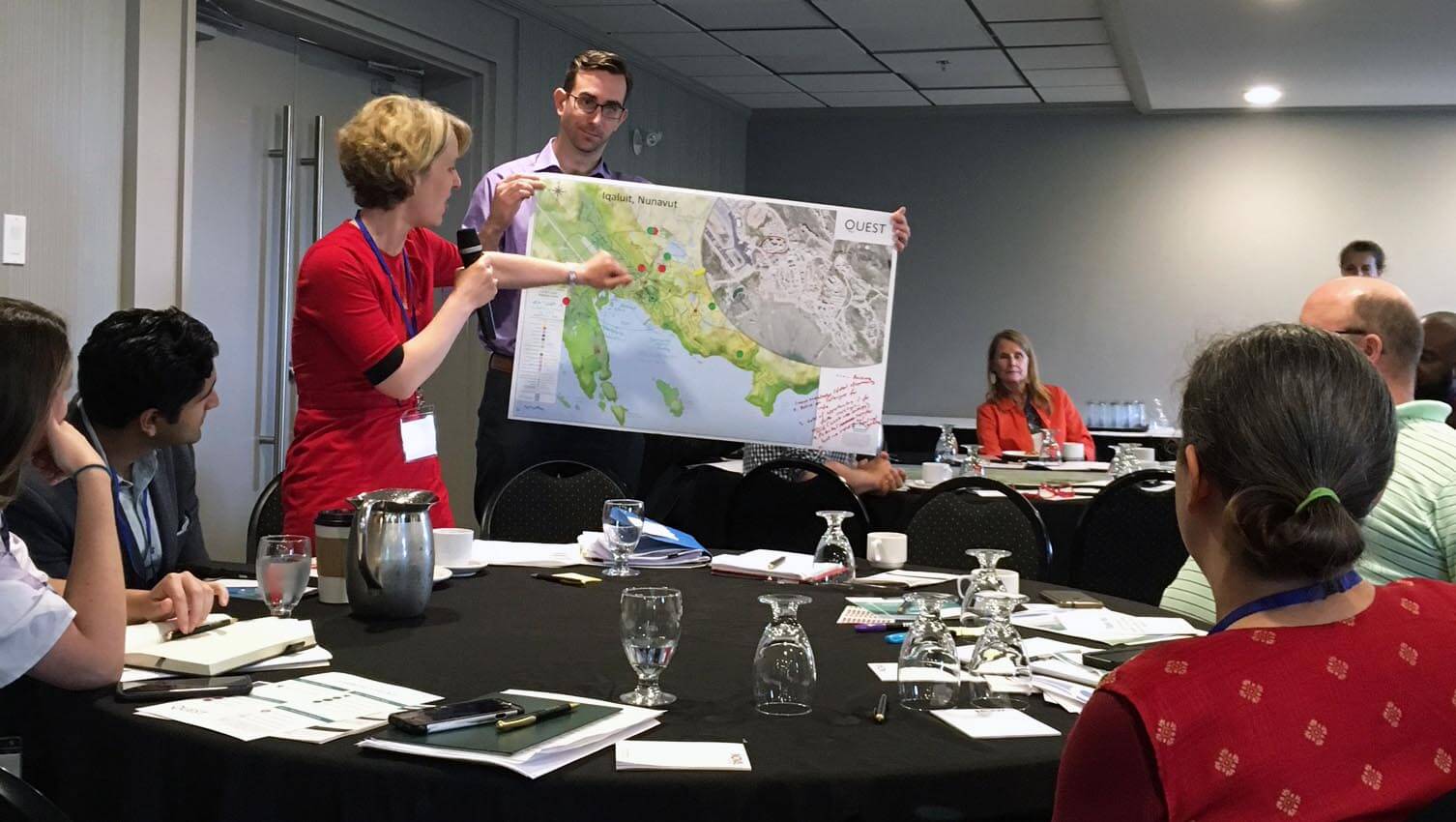Blog
What We Learned in Yellowknife
What an experience it was to fly into Yellowknife for the first time. I remember being surprised at how much the terrain looked like some areas of Nova Scotia where I was born and raised. I’m not sure what I was expecting to see, but based on the reading about the North I had been doing on the flight, I was picturing something different.
While the purpose of the June Workshop in Yellowknife was to produce a summary report that would be presented at the 2018 Energy and Mines Ministers’ Conference in Iqaluit, we did not step off that plane pretending to know it all. In the words of Gordon van Tighem, who has been involved with QUEST from the beginning …

“Instead of saying ‘Hi, I’m from Ottawa and am here to help’, say, ‘Hi, I’m from Ottawa and am here to learn.”

Working with Natural Resources Canada, and the Governments of the Northwest Territories, Yukon, Nunavut, and British Columbia, the workshop brought together First Nations, territorial, provincial, and federal governments; regional indigenous organizations; community representatives; and local industry stakeholders to explore the unique challenges and opportunities with respect to energy in the context of northern and remote communities.


We know that the way northern and remote communities use, produce, and move energy is evolving and these communities will have a new look and feel as a result. Much of the built environment was developed in the middle of the last century; transportation like winter roads is under threat as a result of climate change; there is a shift in demographics that requires stringent cost management; and, innovation, technology, and modern lifestyles and businesses are reshaping energy use patterns.
While these are themes that run through all northern and remote communities, the differences that exist between communities is vast. At the Yellowknife workshop, Cathy Cottrell, a Senior Energy Planner with the Yukon government, put it nicely…

“Once you’ve been to one northern community, you’ve only been to one northern community.”



We heard that northern and remote communities are working to respond to a rapidly changing economic environment and improving quality of life and energy is an important piece of this puzzle. They are exploring and implementing local measures that will reduce their current and future energy needs.
Following the workshop, we brought together everything we heard and learned and packaged it into a Summary Report for policymakers and Ministers for the 2018 Energy and Mines Ministers’ Conference. The Summary Report identified 3 key messages and considerations for policymakers.
The first consideration,

“Ensure future energy transition programming and services appropriately responds to northern and remote community needs and priorities,”

was based on the fact that each northern community is so unique that energy transition programming must include input from each community. Proper, advanced Engagement is critical before finalizing any programming. Bill Williams, an Economic Development Officer at the Hamlet of Kugluktuk put it well…


“Briefings are not consultation. Utilities and governments need to engage and include northern and remote community and indigenous members before and during program development and as part of the implementation.”

The second consideration,

“Through collaboration, ensure human resources and skills are in place to implement an energy transition,”

speaks to the fact that the transition takes place in communities and by communities. Investments in capacity building to empower local community champions in implementing the energy transition is a must.
And lastly –

“Actively invest in and contribute to the sharing of information and lessons learned to advance implementation of projects for an energy transition.”

Better information sharing is important for all Smart Energy Communities because we are breaking new ground. We have to form new partnerships, find better ways to communicate and share information, and document lessons learned so that the next Smart Energy Community initiative can learn from them. There is an important role for policymakers here to make data and information from government and industry more accessible to northern and remote communities. This also includes capacity building so that Smart Energy Community leaders in northern and remote communities have the resources to deliver.
I encourage you to read the full Summary Report, available in both English and French, to get a real sense of the discussions and insights from the day.
The outcomes of this work became part of the official record of the Energy and Mines Ministers’ Conference that took place in Iqaluit this August. At QUEST we will continue to advocate for the policy changes needed to improve quality of life, spur economic development, and lower energy costs through Smart Energy Communities.
The Yellowknife workshop was part of our Advisory Services offerings at QUEST. Our advisory services fall into three categories: Energy Mapping Workshops, Community Energy Planning Support, and Custom Services. All of our services are customizable and designed to help you evolve your business model to succeed in the Smart Energy Communities marketplace. Learn more at www.questcanada.org/advisoryservices or reach out to me directly at ewicks@questcanada.org
Sign Up
Join the Conversation!
Sign up to get the latest news and updates about QUEST Canada events and receive QUEST Canada's monthly newsletter.

